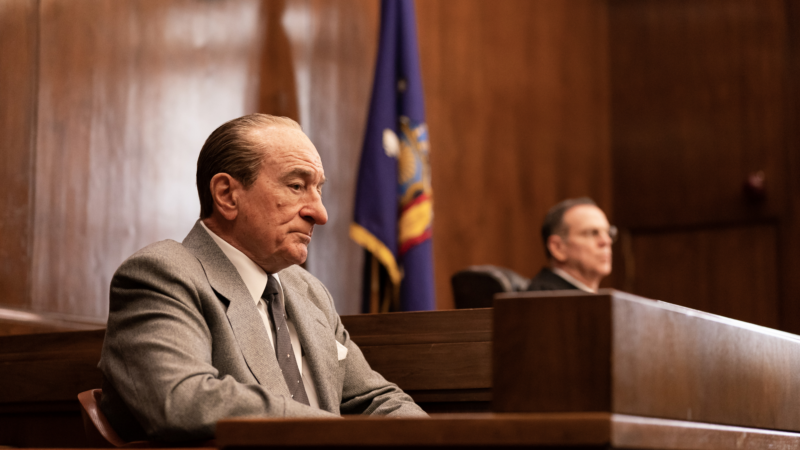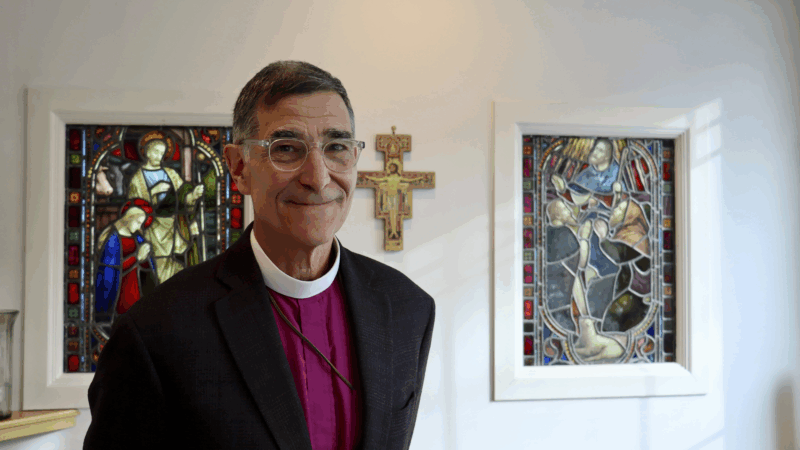‘The Alto Knights’ is a mob drama with a double dose of De Niro and … not much else
It’s been 10 years since Barry Levinson directed a new feature, and if that seems like a long wait, I should note that it’s taken 50 years for The Alto Knights, his new movie, to make it to the big screen.
The idea was first pitched in the 1970s, not long after the New York City crime lord Frank Costello, known as “the prime minister of the underworld,” died at the age of 82. But the film languished in development hell for decades and only got the green light a few years ago, presumably on the strength of a major casting gimmick: Both Costello and his notorious friend-turned-rival, Vito Genovese, are played by the same actor, Robert De Niro.
That’s one way to liven up the formula, I suppose. De Niro has played many mobsters, in The Godfather: Part II, The Untouchables, Goodfellas and The Irishman, for starters. He’s riffing on a lot of those characters in The Alto Knights, which often plays like a hectic rehash of mob-drama clichés. That’s not entirely the movie’s fault; the real-life events it’s tackling here are why some of those clichés exist. Frank Costello was the inspiration for The Godfather himself, Don Vito Corleone.
The Alto Knights begins with a bang in 1957: Frank, the big boss of the Luciano crime family, is shot in the lobby of his New York apartment building. Frank survives and knows immediately that it was Vito who ordered the hit, but he keeps this a secret; he isn’t interested in revenge, and he doesn’t want to start a mob war.
From there, the story flashes back about 50 years, recounting in rapid-fire fashion how young Frank and Vito befriended each other in New York, where they hung out at the Alto Knights Social Club, a hive of gangster activity. Both men became bootleggers during Prohibition, rising through the ranks of the Luciano family; Vito became boss, but fled to Italy to avoid a murder rap. By the time Vito returned, years later, after World War II, Frank was in charge of a prosperous criminal empire, protected by paid-off cops and politicians.
Most of this backstory passes by in a barely coherent rush, which is a shame. Given his knack for dramas about immigrant experiences and boyhood friendships in films like Diner, Avalon and Liberty Heights, Levinson could have teased out something rich from Frank and Vito’s early years. But The Alto Knights, which was written by Goodfellas screenwriter Nicholas Pileggi, is eager to race ahead to the tug-of-war between De Niro and De Niro. Vito, who’s violent and irrationally jealous, wants to seize back control of the outfit and turn it into a drug-dealing operation. Frank is trying to cultivate a legitimate, respectable image and tries to talk Vito out of it.
I’m not sure exactly what the movie gains from having one actor play both roles, unless it’s trying to suggest that Frank and Vito are two sides of the same corrupt coin. Whatever the case, De Niro is clearly at home with this gangland material, and it’s fun to watch him argue with himself.
As Vito, De Niro seems to be channeling Joe Pesci’s hothead from Goodfellas, barking and cursing under a layer of prosthetic pancake. As Frank, he smiles, shrugs, and plays it cool. Frank doesn’t want any trouble; he just wants to rake in the dough, hobnob with philanthropists and politicians, and spend his nights at home watching TV with his wife, played by a frowny Debra Messing. They have a loving, stable marriage, unlike Vito and his fiery wife, Anna, played by a very good Kathrine Narducci.
The Alto Knights doesn’t have many more ideas than this good-mobster/bad-mobster dynamic. The script does pull together a lot of events from the 1950s, including a Senate investigation into interstate crimes and a historic summit that brought together hundreds of mob bosses from around the country. But the movie doesn’t seem to trust its own story. Barely a scene goes by that isn’t embellished with popping flashbulbs and giant newspaper headlines, as if Levinson were trying to convince us that we were watching history in the making.
Still, De Niro’s performances do keep you watching — or, at least, one of them does. Vito may be little more than a walking tantrum, but Frank makes for good company, especially in those moments, toward the end, when he seriously considers bowing to Vito and stepping aside. So what if De Niro is playing a sentimentalized version of a ruthless crook? Hollywood gangster movies — even the ones as dubious and derivative as this one — have always known a thing or two about selling us a beautiful lie.
Venezuela: Maduro’s enforcer Cabello still central to power
The ousting of Venezuela's president raised hopes of change — but the politician now controlling the streets shows how little has really shifted.
Amid ICE clashes, New Hampshire bishop urges clergy to prepare their wills
The Episcopal bishop of New Hampshire told priests protesting ICE to get their wills and affairs in order. Some praise the bishop, while other priests say they never signed up to be martyrs.
New York Giants hire John Harbaugh as coach after identifying him as their top choice
Harbaugh joins the Giants 11 days after he was fired by the Baltimore Ravens. The Super Bowl champion is now tasked with turning around a beleaguered franchise.
US launches new retaliatory strike in Syria, killing leader tied to deadly Islamic State ambush
A third round of retaliatory strikes by the U.S. in Syria has resulted in the death of an Al-Qaeda-affiliated leader, said U.S. Central Command.
NASA rolls out Artemis II craft ahead of crewed lunar orbit
Mission Artemis plans to send Americans to the moon for the first time since the Nixon administration.
Trump says 8 EU countries to be charged 10% tariff for opposing US control of Greenland
In a post on social media, Trump said a 10% tariff will take effect on Feb. 1, and will climb to 25% on June 1 if a deal is not in place for the United States to purchase Greenland.







